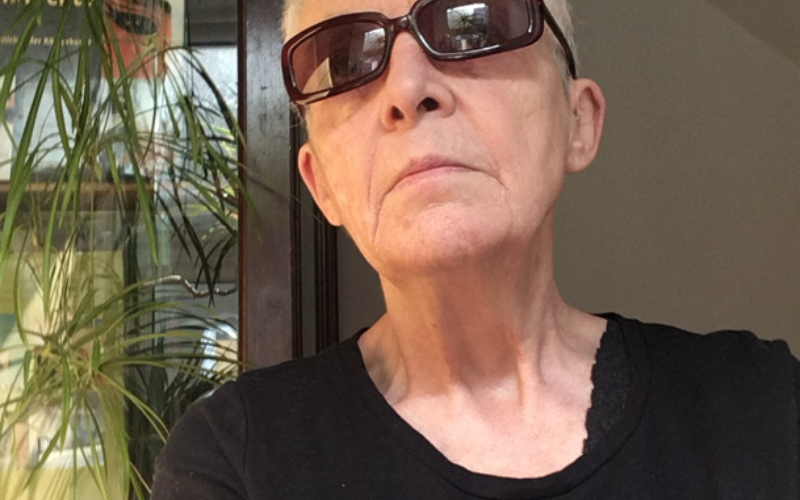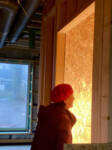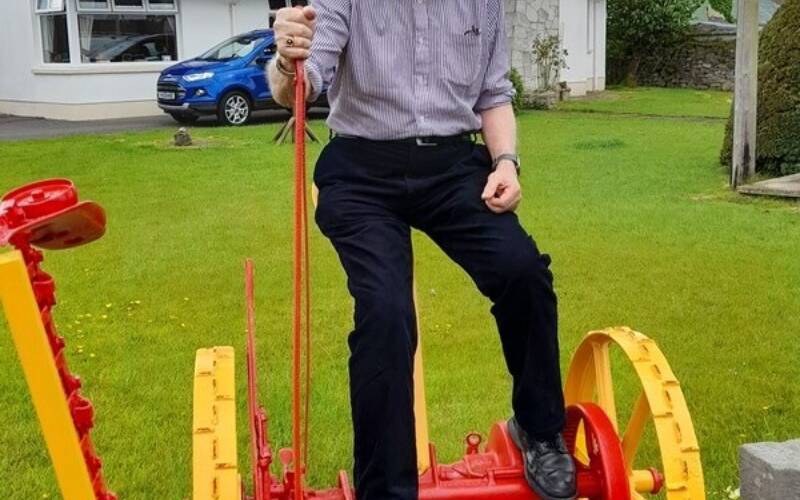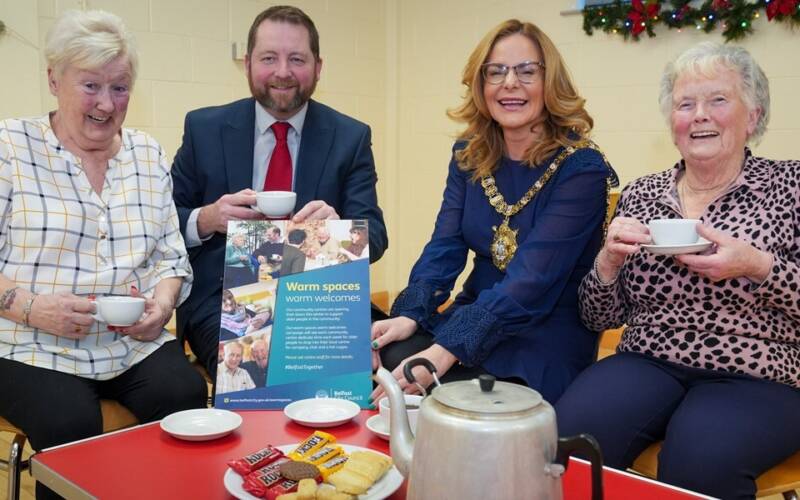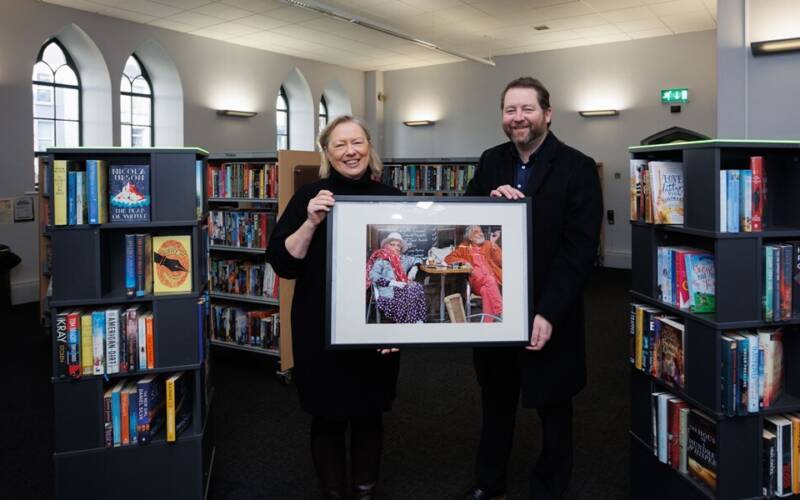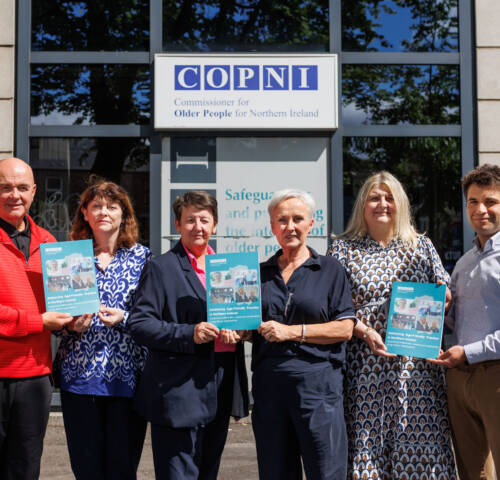We kick off Spring 2024 with a wonderful Words of Wisdom from Mary Scally, who we met at our Tackling Ageism consultation last year, in the North West.
Mary enjoys a very active retirement – if you can call it that – she is currently busy building a passive house with her partner Sophie and is also Co-Chair of Age Friendly at Derry City and Strabane Council, not to mention an advocate for lifelong education who started her career as a nun before becoming a university lecturer and was a founding member of homeless charity Threshold.
Tell us a bit about yourself?
I was born in County Roscommon in 1946. We and the families all around there managed to live off a small holding. A feature was nature working with nature, no fertilizers or motorised machinery. I had to help on the farm from a young age. On reflection we were organic, practising permaculture and recycling. This was done through necessity. We were the only children in our townland at the time, so we were totally part of an intergenerational community.
What did / do you work at?
Straight after school I entered the convent. We had to work hard there but that’s another story. It was in the convent that I got an acute sense of hierarchy, patriarchy and the effects of privileged backgrounds.
Subsequently, I was sent by the Order to London for further studies with a view to ‘going on the missions’. It was a time of radical change in so many ways in the wider society. And for me, too. including the light bulb moment that one could make a significant contribution to the things I cared about and was interested in also as a lay person. I left the order. I had been studying science subjects and took the first job that I was saw which was as a trainee Laboratory Technician in the great St Bartholomew’s hospital and studied at Paddington College. Then one day two strangers walked into the boss’s office. I was called in to be told these were CID and that I was being taken away to be questioned regarding the Old Bailey Bombing. Someone from work had reported that I looked like the woman in the identikit of the alleged bombers. That was it – I wanted out of London and at the first opportunity I took a job as a technician in the newly established Agricultural Institute in Dublin while also studying at Kevin Street College of Technology.
It was through Combat Poverty that I met Sr Stanislaus Kennedy who invited me to apply for a job as Community Development and Liaison officer in Kilkenny. I welcomed this to get a chance to work with a range of people and groups on the ground, including older people.
It did not take long to see some of the contradictions in the voluntary sector. I always remember the older people’s day centre with women just sitting around knitting, week after week. Passivity and segregation were in your face. Overall, I found this a challenging time, but I worked hard there and got awarded a scholarship to do an MPhil in Community Development which I undertook at Swansea University, which led to a job teaching on the social work course there which I loved. I was lead for the module on Older People combining action learning and practice in such a range of community settings. It was my mother’s illness the prompted me to come back to Ireland and that led me to be a Social Work Lecturer in Magee at the University of Ulster until I retired a few years ago.
What does getting older mean to you?
I take note every day of some good news. I believe in the future and our responsibility to make it better for all of us. Never again let us be moved out of our hospital beds to places where we have no protection against a deadly pandemic and die. It is our own choice within our personal circumstances to make the most of life. One thing we have in common is that it has an expiration date.
What would you say are the most difficult things about growing older?
Experiencing Ageism. Even worse is that older people are often ageist themselves. There are examples all around us. How often do I say “I’m having a senior’s moment” when I can’t remember something. If we do speak up, we are seen as a bit of a nuisance, annoying or demanding. This happens in most instances, including in health service settings. Who hasn’t some powerful examples of discriminatory practice towards us as older people. I have and I hear about others every day. I have been denied important medical interventions due to my age.
Can you give us an example of a time you experienced ageism as you've got older?
I have been discriminated against at work due to my age. A way forward regarding the problem of ageism is to make sure it is called out in all its guises and settings. It means zero tolerance of ageism in all work setting and people whistleblowing on discrimination. Health and social care services must radically change in their policies and many practices regarding older people.
If there was one thing you could change about being an older person in Northern Ireland today what would that be?
We need to develop a ‘what’s strong and not what’s wrong’ (Cormac Russell) attitude to older people. We need to act on ageing better from a younger age.
Any final words on ageing?
The years have gone by like minutes and have taken me to different places. The longest place I have ever lived is in Derry, where I have been now for nearly 30 years. I live with my partner Sophie who is originally from Berlin. I came here to work at Magee University and I love many aspects of this place and the opportunities it affords me to participate and volunteer in such an interesting range of things and be part of the community.
It is a beacon of hope that the Commissioner’s Office is investigating and reporting on Ageism. When he and the Team came for a consultation in the North West to hear our views on ageism, I went along with my best friend Carmel Mulrine, an amazing woman and lifelong activist. Such a consistent advocate for the inclusion of older people in civic society, she was working on setting up The Forum for Ageing Better (FAB). One of the things she came up against in trying to set up the Forum was silo working and the non-engagement of most older people.
Carmel died unexpectedly a few weeks ago after a very short illness. She made the most of every day in every way. She wanted a greater presence for the Commissioner’s Office and Age NI in the North West. She is such a loss and would have read over these meanderings of mine were she here. I dedicate them to her.
